On December 12, 2024, the Center for International Security and Strategy , Tsinghua University (CISS) successfully held its the 25th CISS Youth's Book Club.This event featured a talk by Jeffrey Ding, an assistant professor of political science at George Washington University, who shared insights from his recent book, "Technology and the Rise of Great Powers: How Diffusion Shapes Economic Competition," published by Princeton University Press. The event was moderated by Dong Ting, a fellow of CISS ,and included discussions with Gu Dengchen, Director of the Overseas Policy Research Center at Alibaba Research Institute, and Lu Yipei, a graduate student in the Department of International Relations at Tsinghua University.
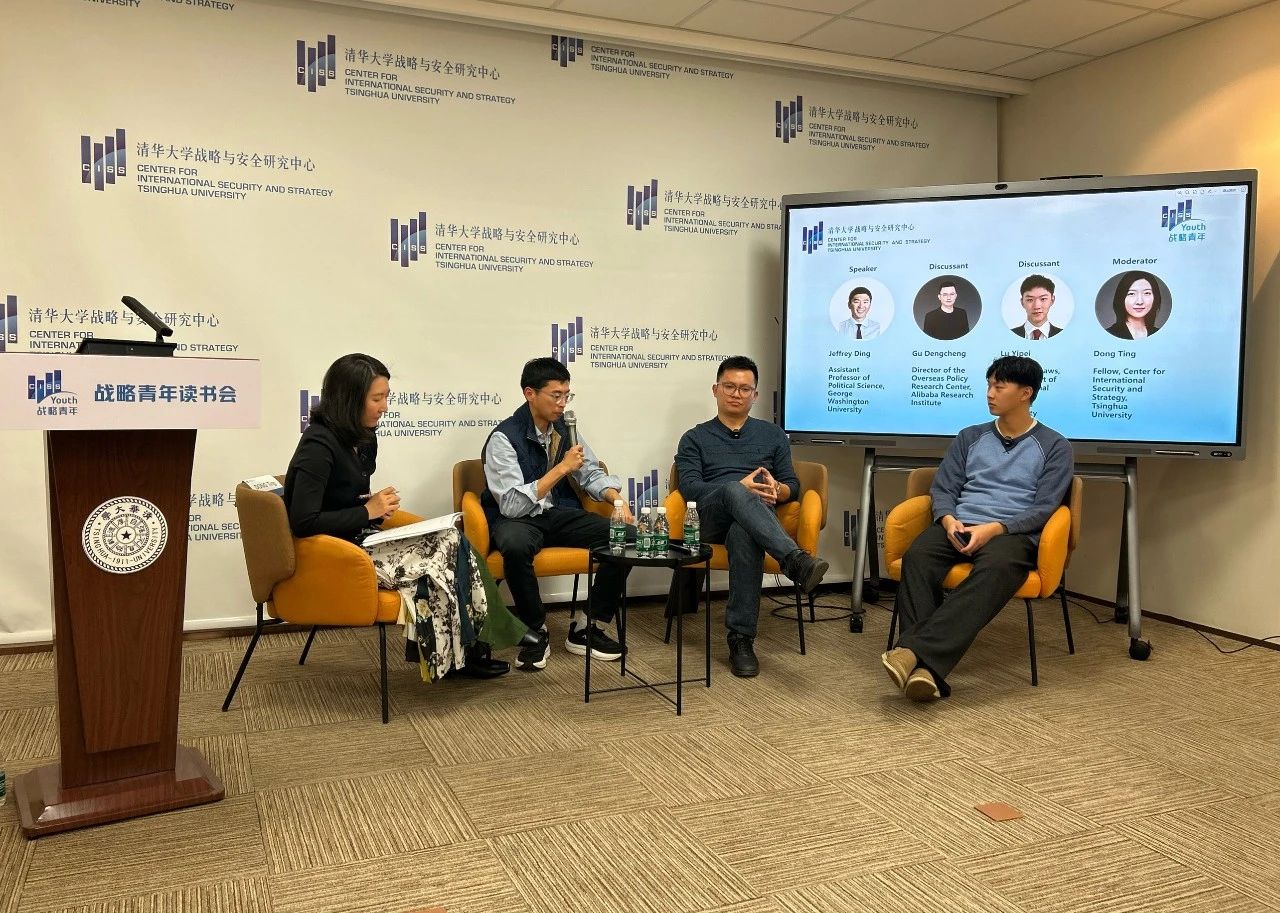
Jeffrey Ding began by outlining the core concepts of his book. He argued that traditional "leading industry theory" overemphasizes the importance of monopolizing emerging technology industries. Instead, he proposed the "general-purpose technology diffusion theory," which better analyzes the relationship between technological revolutions and the strength of countries, that is, a country's strength depends more on its ability to widely apply new technologies to the entire economic system of its own society. Using the example of the United States surpassing the United Kingdom during the Second Industrial Revolution, Ding highlighted that the key to becoming a global economic powerhouse lies not in monopolizing innovation but in effectively applying new technologies in practice. This historical perspective provides important insights into the current competition between China and the United States in artificial intelligence. Ding noted that, compared to leading positions in cutting-edge technology, it is more crucial to see who can better promote the application of AI technology across the entire social and economic life. From this perspective, the United States has significant advantages in technology diffusion, talent cultivation, and the integration of industry, academia, and research. China has made tremendous progress in technological innovation and has great potential in technology diffusion, with both countries playing important roles in the global emerging technology field.
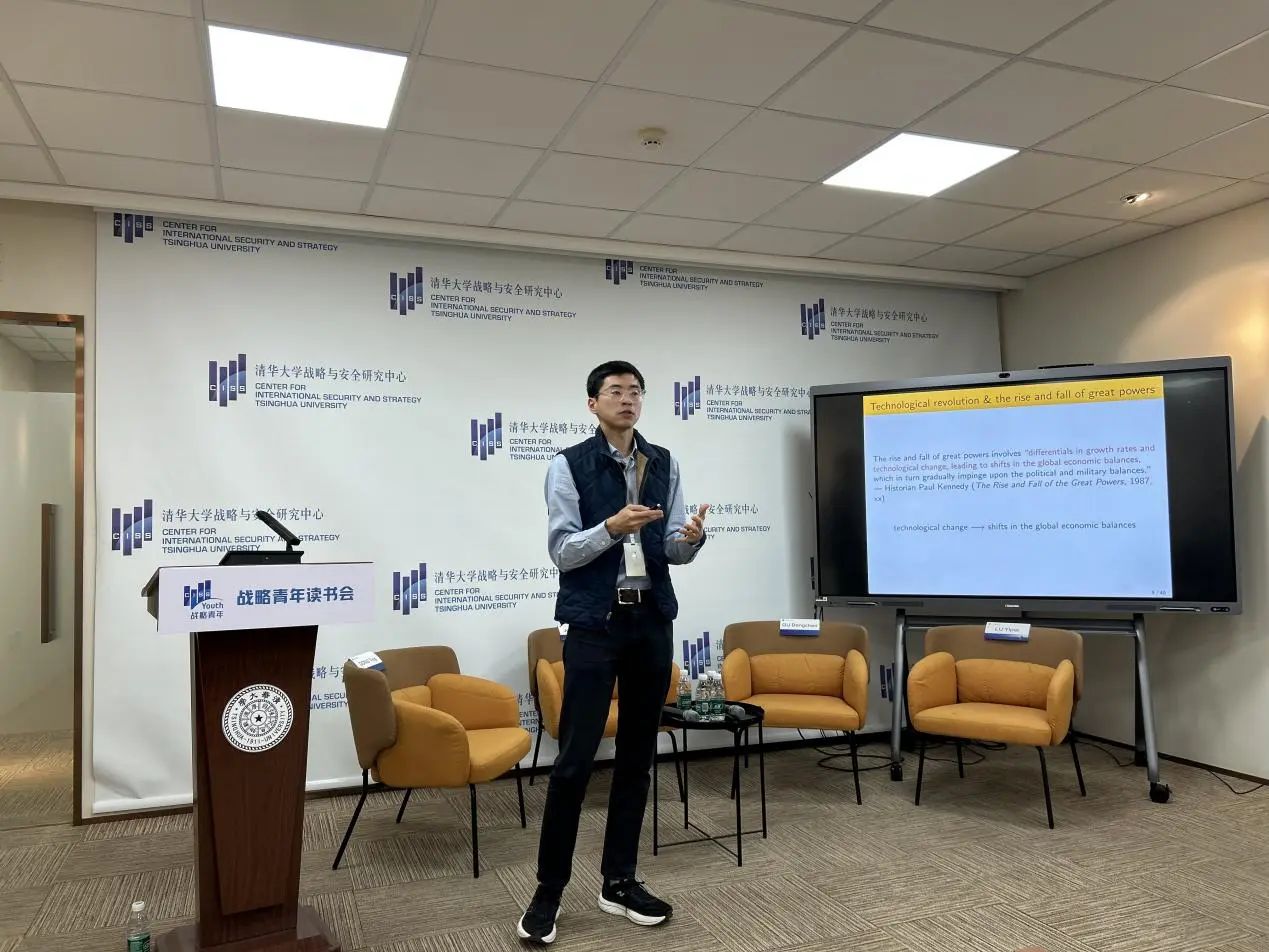
During the discussion, Gu Dengchen conducted an in-depth discussion on the spread of general purpose technologies. He believes that the value of general purpose technology does not lie in leading in a certain field, but in promoting economic growth in the whole society. The government and the market need to form a joint force to jointly cultivate an innovation ecosystem that is conducive to the widespread application of technology. The current development of emerging technologies such as artificial intelligence requires not only government guidance, but also market power. Governments can promote the early spread of technology through policy tools, but they must grasp the boundaries of intervention, and they need to accurately identify core technologies, maintain market orientation and exit in a timely manner. Although China has made significant achievements in the application of emerging technologies in the past, the current promotion of artificial intelligence is still slower than expected. The key to solving this challenge is to strengthen industry knowledge-how research, give full play to the role of digital technology platforms in the diffusion of new technologies, and at the same time pay attention to cultivating an innovation-oriented policy environment and building an ecological system that supports innovation in the entire industry.
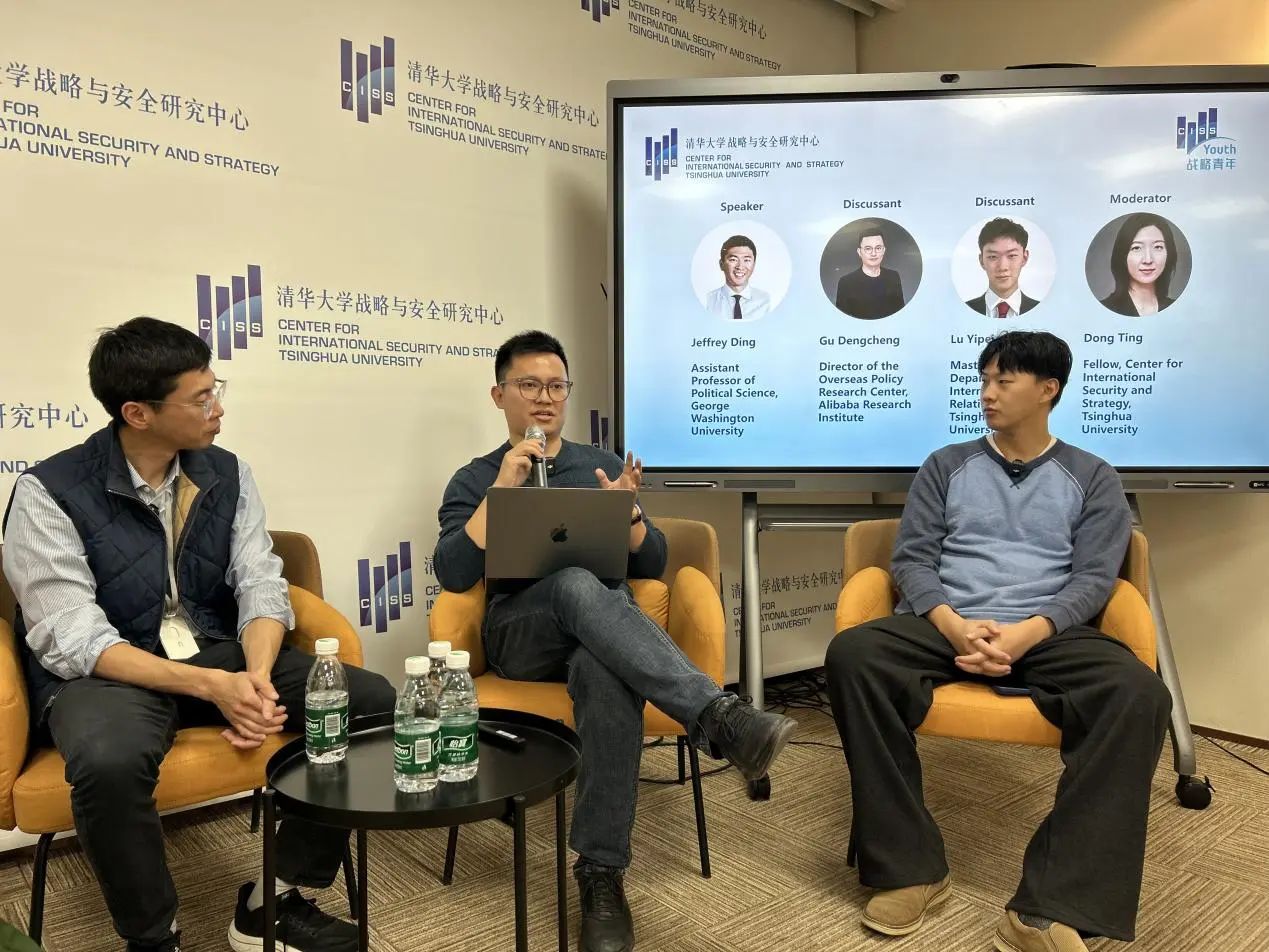
Lu Yipei discussed the relationship between technology diffusion and geopolitics from the perspective of technology and international politics. He pointed out that technology is not only a crucial tool for measuring national competitiveness but also a vital instrument in great power rivalry. Against the current intensified competition for major global powers, the process of technology spread directly affects the country's strategic layout and the distribution of international discourse power. Lu Yipei said that the competition between China and the United States in the field of artificial intelligence is not only a contest for technological innovation capabilities, but also a strategic game around the dominance of technological diffusion. By reviewing the historical cases of the United States using trade and industrial policies to curb the rise of Japan's semiconductor industry, he revealed the important role played by geopolitical factors in the process of global technology spread. This historical experience shows that technological diffusion is not only driven by market and innovation, but is more deeply restricted by strategic interactions and power structures between countries.
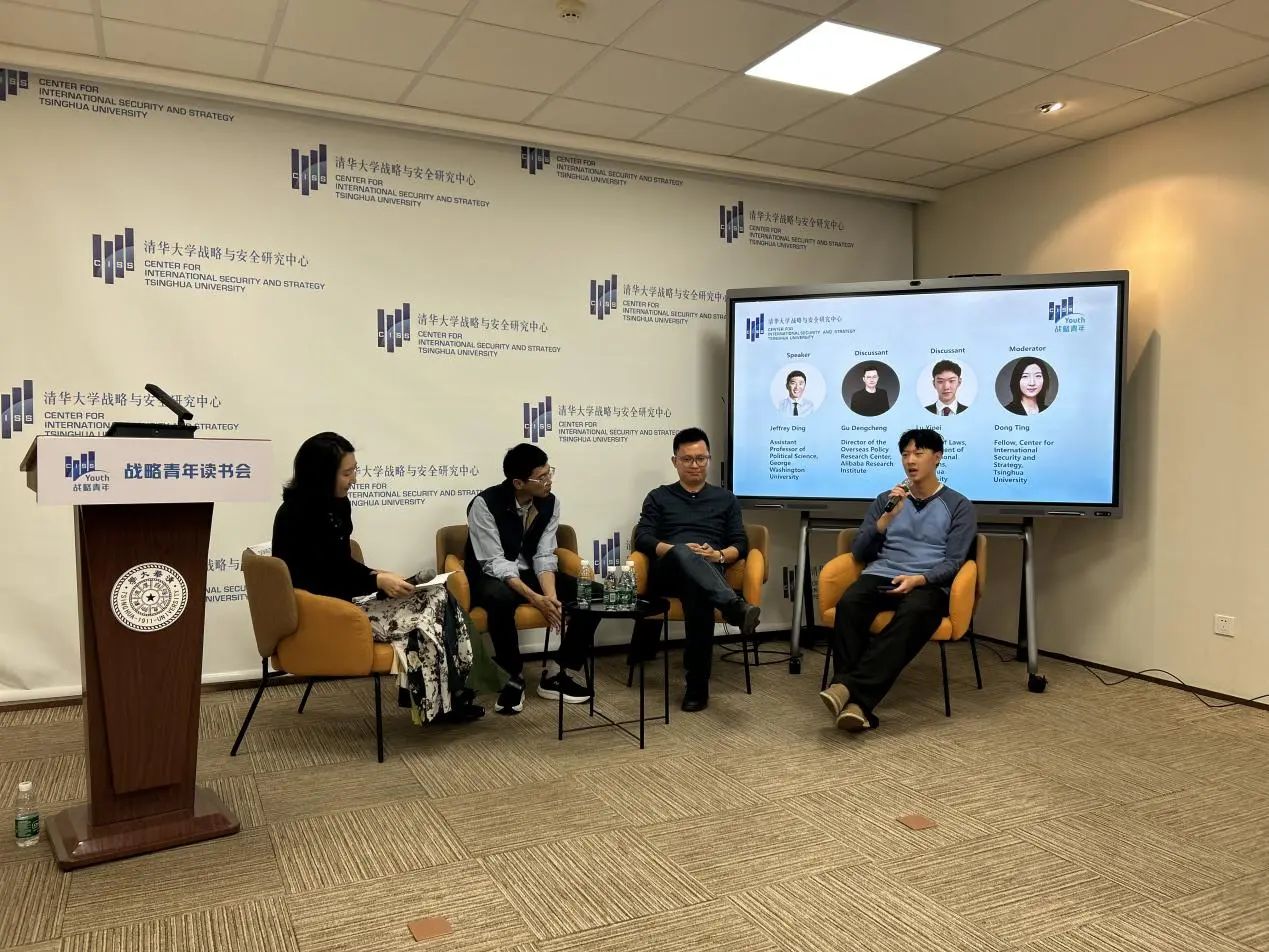
During the interactive event, the audience asked questions and interacted enthusiastically with the guests on a series of issues such as the actual challenges in the process of technology diffusion, the current situation and direction of improvement of artificial intelligence education, opportunities and challenges in international technical cooperation.
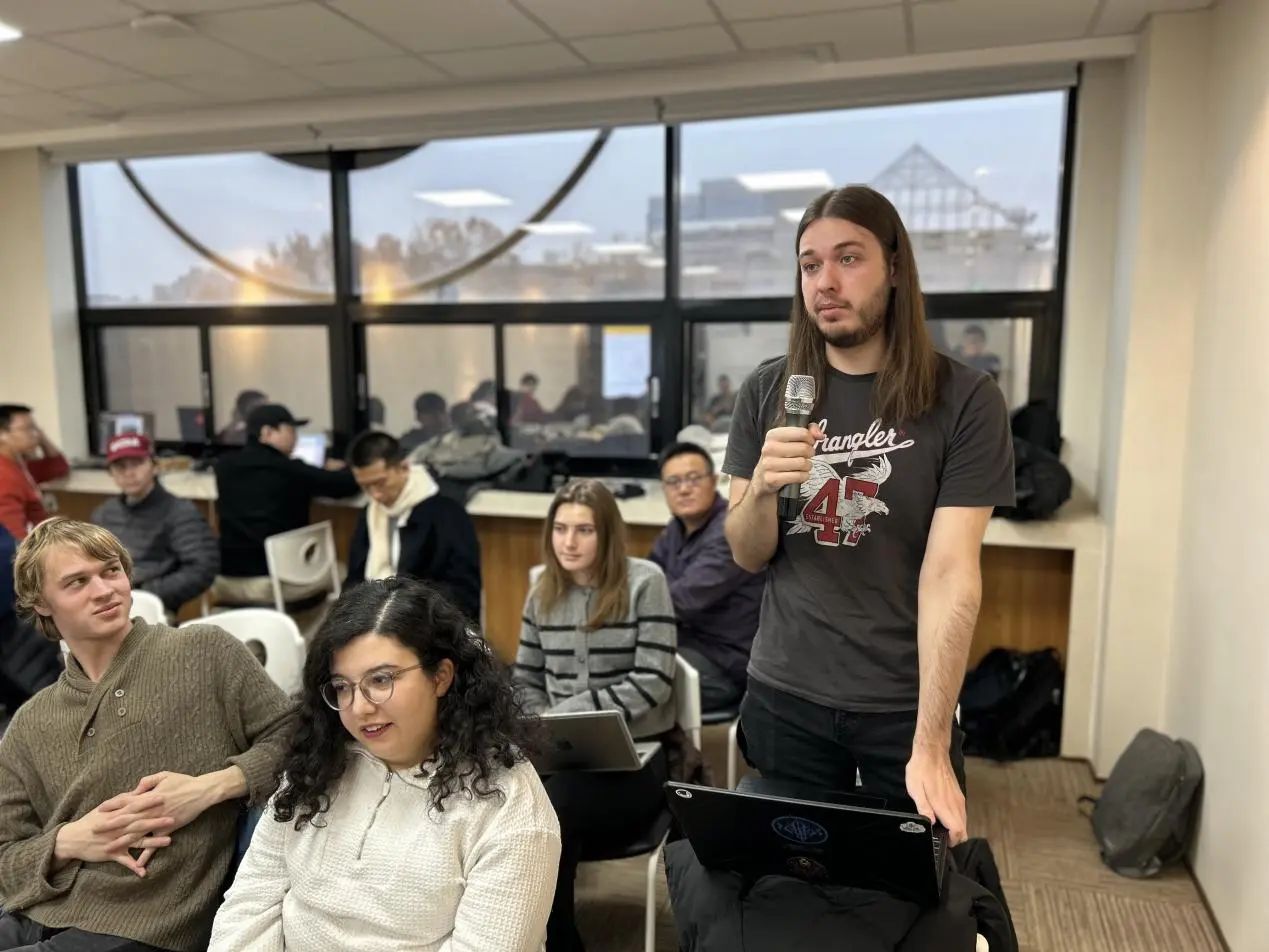
This issue of the book club was conducted in a hybrid format, combining online and offline participation, and was live-streamed by the "Princeton Book Club" public account, effectively expanding its reach and deepening discussions on the relationship between technology and the rise of great powers.
The CISS Youth will continue to organize more academic exchange activities in the future. Stay tuned!
